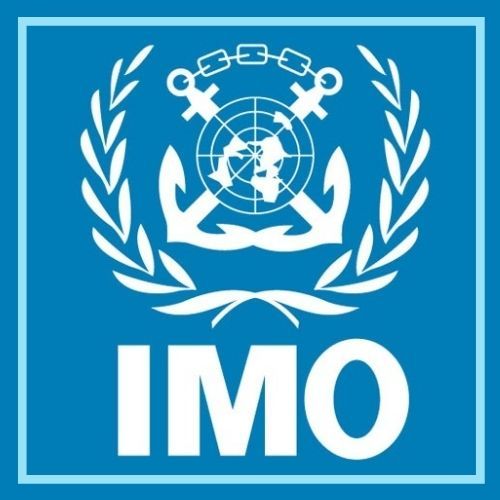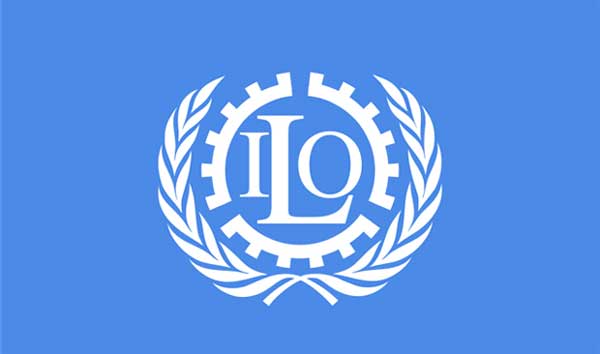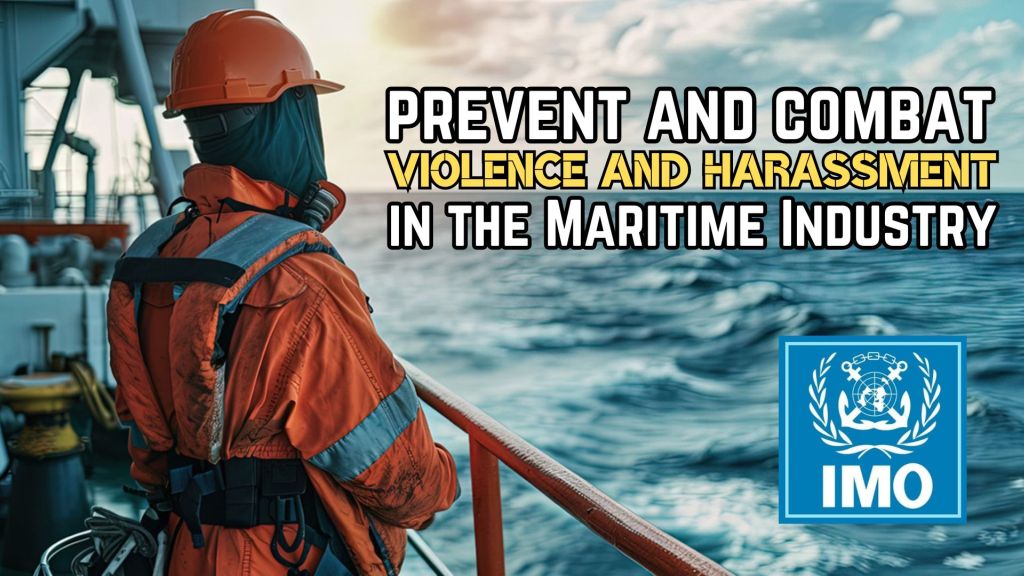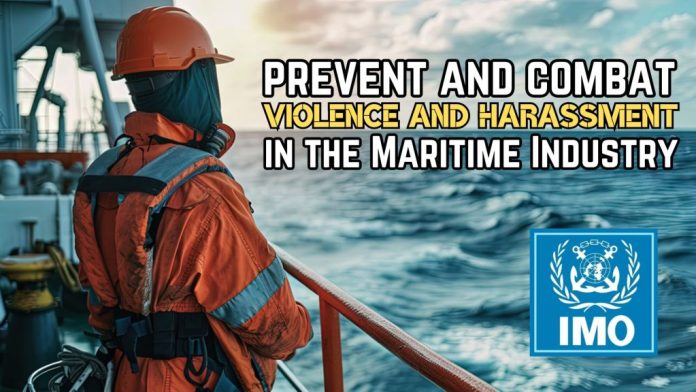
(www.MaritimeCyprus.com) The International Maritime Organization (IMO) and the International Labour Organization (ILO) are working jointly to combat violence and harassment, including sexual harassment, bullying and sexual assault, in the maritime sector.
A meeting of the Joint ILO/IMO Tripartite Working Group (JTWG), which includes representation from governments, ship owners and seafarers, was held from 27 to 29 February in the IMO Headquarters in London, United Kingdom, to discuss potential future steps to prevent and address this serious issue, including by means of legislation, mechanisms and policies as well as enhanced training.
Globally, there has been an increasing awareness of violence and harassment occurring on ships, including sexual harassment, bullying and sexual assault, which compound the already challenging working conditions.
Opening the session, IMO Secretary-General Mr. Arsenio Dominguez said:
“We remain steadfast in our commitment to creating a safe and respectful working environment on board. Recognizing that this is not only a moral imperative but also a practical necessity for the industry's sustainable growth, we are committed to preventing and combatting bullying and harassment in the maritime sector. Our shared goal is clear - to meet the expectations of seafarers, the industry, Administrations, and the public at large in making shipping free of any form of aggression.”
ILO Director of the Sectoral Policies Department (SECTOR), Mr. Frank Hagemann said:
“It is essential that we do everything in our power to address issues that can cause experienced seafarers to leave the sea or to dissuade young women and men from taking up the profession. Any form of (...) violence and harassment is in direct contradiction to the very concept of decent work. There must be zero tolerance of such behaviour.”
Following three days of deliberations, the Joint ILO/IMO Tripartite Working Group agreed on several recommendations to be submitted to the IMO’s Maritime Safety Committee at its next meeting in May 2024 (MSC 108) and to the ILO Governing Body in due course.
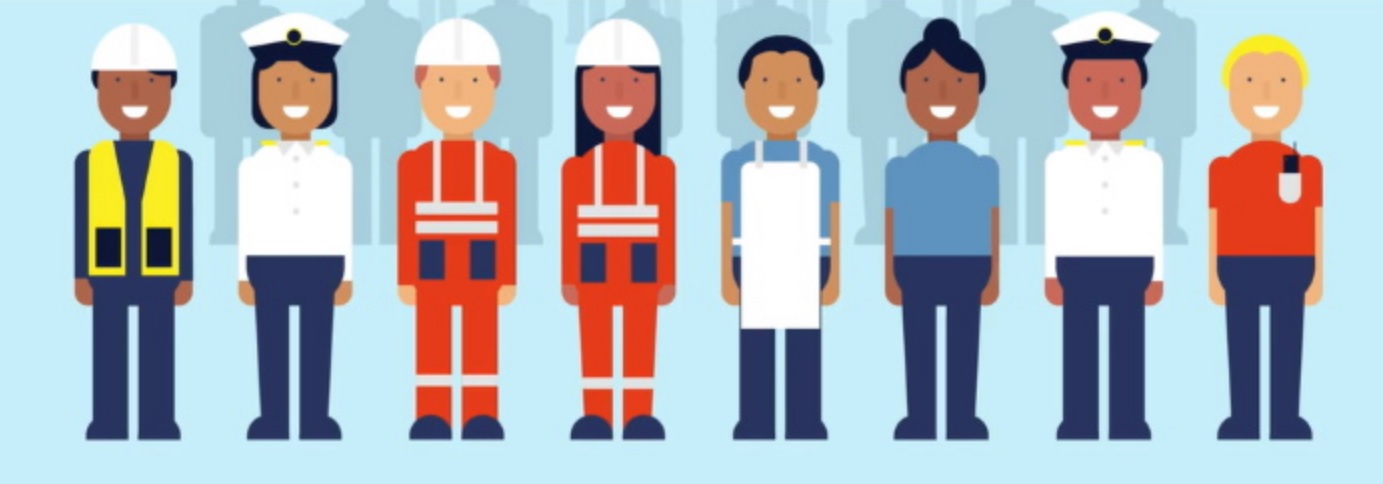
Harmonized terminology
The JTWG recommended the use of the terminology "violence and harassment, including sexual harassment, bullying and sexual assault" in relevant instruments and guidance under both IMO and ILO, to reflect their relevance in the maritime sector.
Mandatory training for seafarers
The JTWG recommended the MSC consider an updated set of amendments to the Seafarers’ Training, Certification and Watchkeeping (STCW) Code, contained in table A-VI/1-4 of the STCW, by taking into account the outcomes emanating from the JTWG, with a view to subsequent adoption at the MSC 108 session. This pertains to mandatory minimum requirements for safety familiarization, basic training and instruction for all seafarers.
The draft amendments ensure that seafarers are equipped with the basic knowledge and understanding of violence and harassment, including sexual harassment, bullying and sexual assault, and how to prevent and respond to incidents. The draft amendments were approved by MSC at its 107th session in 2023, pending consideration by the JTWG.
Measures for Administrations and shipping companies
The JTWG recommended that the MSC consider the adoption of measures, applicable to Administrations and shipping companies worldwide, to address violence and harassment, including sexual harassment, bullying and sexual assault.
These measures would support the implementation of the IMO requirements for the safe management and operation of ships at sea (ISM Code), and include:
- incorporating relevant policies and procedures in safety management systems, including victim care and protection against retaliation; in addition to establishing the additional safety management objectives for the company, including the assessment of risks and establishment of safeguards;
- specifying that safety management systems should ensure compliance with mandatory rules and regulations on the issue, including national requirements, and that guidance from the industry organizations is observed;
- apportioning responsibilities on companies' senior management and administrations for addressing reported cases, as well as providing adequate resources to respond, including medical care and mental health support for victims; and
- ensuring training and familiarization of seafarers and designated shoreside personnel on the company's policies and their implementation.
Removing perpetrators from service
The JTWG recommended that MSC instruct the IMO Sub-Committee on Human Element, Training and Watchkeeping (HTW) to consider the proposal to include a new requirement in Regulation I/5 (National provisions) of the International Convention on Standards of Training, Certification and Watchkeeping for Seafarers (STCW). This requirement would involve the suspension or revocation of the credentials of any seafarer convicted for sexual assault, and by doing so, remove perpetrators from service.
Medical guides
The JTWG recommended that, in coordination with the World Health Organization (WHO), the actions taken as a result of its meeting be taken into account when amending the International Medical Guide for Ships, 3rd edition, or when revising industry and national medical guides.
International awareness campaign
The JTWG recommended the launch of a joint ILO-IMO international campaign, with the support of ILO and IMO Member States, seafarers, shipowners, governmental and non-governmental organizations, to raise awareness around the issue. It encouraged Governments to launch national campaigns in collaboration with social partners and other national organizations.
Collecting data on violence and harassment
The JTWG requested the IMO and ILO Secretariats to explore ways to collect data, in an appropriate manner, about violence and harassment, including sexual harassment, bullying and sexual assault in the maritime sector. The JTWG encouraged Governments, seafarers, shipowners and all stakeholders to consider, in future meetings, how to collect data holistically, including every necessary safeguard.
ILO instruments
The JTWG recommended that the ILO Governing Body invite the members of the ILO Special Tripartite Committee of the Maritime Labour Convention, 2006 (STC), which meets in April 2025, to consider submitting relevant proposals to amend the MLC, 2006.
The aim is to ensure that Member States and shipping companies define and prohibit shipboard violence and harassment, including sexual harassment, bullying and sexual assault and adopt relevant policies, measures and programmes to prevent and address these issues.
Potential amendments would include the introduction of policies and measures that could address the different and complementary responsibilities of flag States, port States, labour-supplying States, shipowners, seafarers and other relevant stakeholders, as well as enhance cooperation among these groups.
Proposals could build on existing onboard and onshore complaints mechanisms to provide easy access to effective remedies in cases of violence and harassment, including the protection against victimization or retaliation and of the privacy and confidentiality of those involved.
Social partners
The JTWG recommended the International Transport Workers’ Federation (ITF) and the International Chamber of Shipping (ICS) review and update their Guidance on eliminating shipboard harassment and bullying, to reflect any actions taken by IMO and ILO bodies, following up on recommendations by the JTWG.
Consensus for action
Welcoming the outcomes of the meeting, Mr. Danny McGowan, Vice-Chairperson of the JTWG for the Seafarers' Group said:
“The recommendations that we have made by consensus this week are a step in the right direction to dealing with violence and harassment, including sexual assault, bullying and sexual harassment in the maritime industry. By looking at instruments such as STCW, and at the ISM Code, alongside conventions such as the Maritime Labour Convention and C190, we have ensured that this will remain an important safety matter and seafarer issue to be considered in both the IMO and ILO. We look forward to continuing to work with shipowners and governments to put these recommendations into action for the benefit of all seafarers, on all ships, and creating a safe working culture of zero tolerance for these behaviours.”
Mr. Tim Springett, Vice-Chairperson of the JTWG for the Shipowners' Group said:
“The Shipowners’ group is delighted to have achieved a tripartite consensus on the way forward for our joint efforts to address this important subject. The outcome of the meeting and the spirit in which it was conducted should inspire confidence that we will adopt regulatory and recommendatory measures at the next ILO Special Tripartite Committee meeting to tackle and eliminate violence and harassment in all its forms from our sector.”
Source: IMO, ILO
